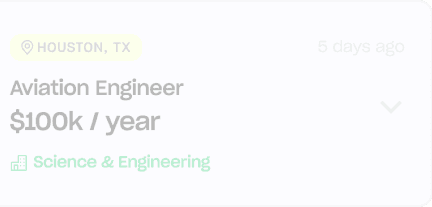

Heads up: This article may include affiliate links or sponsored content from brands and products we trust or actually use ourselves. Using them doesn’t cost you a thing, but it helps support our mission.
Will AI take my job? I hope not, and it probably won’t, but it’s definitely changing it.
I’m a writer, a position that’s high on the AI-chopping block, according to new research from Microsoft. This study also cites other roles, such as historians, mathematicians, proofreaders, and sales reps, among the top 40 jobs to be impacted by generative AI.
AI can be a great tool to help improve our work. AI helps me research topics and strategies, analyze data, and audit my finished pieces to meet standards. However, it isn’t necessarily true that it can completely replace us (or entire teams).
Key points:
- AI probably won’t take your job, but it’s changing it in one way or another.
- AI is most likely to replace jobs that are repetitive or rules-based.
- Jobs that can't be replaced by AI are those that require human empathy, creativity, or contextual judgement.
- AI will create new jobs like AI auditors and AI integrators, and grow other jobs like cybersecurity specialists.
- Browse thousands of publicly shared salaries in our Salary Database to see how much new AI jobs are paying.
- Search our Salary Transparent Job Board for AI roles and to see how different job requirements are changing with the rise of AI.
Why AI Won’t Take My Job (or Yours)
As a writer, my work heavily draws from my unique human perspective and how I think. As much as many big companies want to argue that AI can replace that work, it really can’t. It can try, but it will never have the lived experience of a human that makes a great writer.
Same goes for content creators like the founder of Salary Transparent Street, Hannah Williams. Would you be following her content if it was AI and not an actual human that you can connect with? I don’t think so.
It’s a little different for tech jobs. While they require creativity to address business problems, their work operates at an enterprise scale. AI doesn’t really get complex concepts and needs within an organization, like how to support a customized legacy system that is specific to one company (and has slim to no documentation).
I recently spoke with Abhishek Agrawal, a senior engineering leader at Amazon, who says that while AI won’t take most jobs, “it will fundamentally transform how many are performed.”
“Historically, technological shifts have displaced some tasks while creating entirely new industries,” Agrawal said. “For example, in software development, AI-assisted coding tools are increasing productivity but not replacing engineers. Instead, they allow developers to spend less time on repetitive debugging and more on designing complex systems.”
The AI Hype Bubble
There’s something that’s often overlooked when we see tech company after tech company replacing staff with AI. AI isn’t at the level yet to do the things they want it to do. Sure, they want to cut costs and boost efficiency, but they may end up sacrificing quality while doing so. There is still a significant amount of human oversight required. Many AI tools are clunky with several security and legal issues.
For starters, large language models (LLMs) like ChatGPT don’t excel at fact checking and often make things up. So much so that tech bros created a term for it: “hallucination”. OpenAI even admitted that their model hallucinates more than a third of the time. If that’s something you use for your job, make sure you do the extra leg work on your part to fact check what LLMs are telling you.
We’re a far way off from artificial general intelligence (AGI) that would make it possible for AI to handle more complex tasks with less human oversight. This is still a hypothetical concept. No existing system comes close to matching the unique capabilities of a living mind. Sure, it can process at a speed our minds can't, it can be trained on millions of pieces of data that a human may have trouble retaining , but it isn't capable of forming original thought (and often falls short of recognizing nuance).
What we have now is narrow AI. Narrow AI is created for specific tasks but the AI doesn’t “think”. AGI is when the AI can understand and learn any task a human can. It's theorized that it would have human-level cognitive abilities, but we’re just not there yet. AI researchers expect it to be around 2040 until we achieve AGI.
AI Will Most Likely Change Your Job Instead
AI is expected to change 60% of current jobs, according to a report from the World Economic Forum. Jobs are already changing with many employees utilizing AI tools in their roles, such as ChatGPT for various uses, Microsoft and GitHub Copilot for coding and enterprise-level work, and Tableau AI for data and analytics.
Automation is becoming a foundational part of the workplace with 40% of U.S. employees saying they’ve used AI a few times a year or more, according to Gallup research. The best thing you can do for your job right now is to learn how to best incorporate AI in your own career and learn as much about AI as you can.
To start learning AI skills, here are a few courses we recommend:
- Google’s AI Essentials
- Vanderbilt’s Prompt Engineering for ChatGPT
- IBM AI Developer Professional Certificate
Building AI agents that could potentially help you with your work is a skill growing in demand. This isn’t something that’s overly complicated, it’s seen as valuable within the company, and might even impress your manager. It’s your way of showing them that you know your field is changing and you’re staying on top of emerging technologies to stay ahead of the game. This is a good (and quick) tutorial to follow for building your first AI agent.
Many agents use OpenAI, so remember the earlier statement that OpenAI admitted to its tendency to hallucinate information over a third of the time. OpenAI isn’t the only one that does this. Always do your due diligence, fact check, and quality check whatever AI is doing for you. Your work is still your responsibility, even if an AI agent helped you out.
Pro tip: AI can also be used to increase your salary as you grow your career. Use AI to help negotiate salary in a job offer, create salary negotiation scripts, and ask for a raise. But first – download our Salary Negotiation Guide.
What New Jobs Will AI Create?
AI is expected to create millions of brand new jobs within the next few years, according to the McKinsey Global Institute and the World Economic Forum’s Future of Jobs Report 2025. Among these are a few we’re already starting to see, such as AI trainers and prompt engineers.
The New York Times put together a list of 22 new jobs AI could give us based on three areas where humans are necessary: trust, integration, and taste. Their list mentions roles like AI auditors who would investigate AI and document it for various purposes, AI integrators who find the best ways to use AI in a company and implement it, and AI ethicists who build defensible logic used to support decisions made by AI.
This mirrors Agrawal’s prediction that AI “creates demand for new roles in AI ethics and model governance.”
The taste category of new jobs are mainly made up of creative jobs. These include article designers who design an article with the help of AI to put it together, and world designers that will design entire worlds for everything from marketing campaigns to video games.
Teresa Fuller, an AI and brand marketing consultant, says her job is already morphing into one of these new jobs. She said she can “use AI to scale content across Shopify, Klaviyo, YouTube, and Pinterest, analyze customer insights with Ground.ai, and optimize ads on Meta and Google.”
“That frees me up to focus on what AI can’t do: creative direction, building partnerships, and setting strategy. Instead of replacing me, AI makes me faster, sharper, and more effective.”
Other possible new roles are:
- Legal guarantors
- Consistency coordinators
- Escalation officers
- Drug-compliance optimizers
- Human resources designers
- Civil designers
What Jobs Will AI Most Likely Replace?
As discussed in our podcast episode, AI will most likely replace jobs that are repetitive and rules-based. These are positions like data entry roles, customer service reps, telemarketers, proofreaders, and administrative assistants.
Retail workers and cashiers are also identified as highly-replaceable, but this still requires some human oversight. I’ve yet to go through a self checkout where there wasn’t a person needing help every 5 minutes.
Manufacturing and assembly line jobs are other roles likely to be replaced by AI. This is something UPS, Puma, and Ryobi are already doing with Pickle Robot, a physical AI for supply chain management.
Jobs Safe From AI
Agrawal thinks jobs that are the safest from AI are the ones that require our humanity. “AI struggles in areas requiring deep human empathy, creativity rooted in lived experience, and contextual judgement.”
“For instance, AI can recommend treatments in healthcare, but the trust and reassurance a doctor provides to a patient is irreplaceable.”
Other AI-safe jobs we’ve found from recent interviews include:
- Trade jobs like electricians and plumbers
- EMTs
- Nurse practitioners
- Physical therapists
- Athletic trainers
- Choreographers
- Chemical engineers.
We interviewed a chemical engineer making $300,000 a year!
?
Jobs that are not only safe from AI, but will also grow because of it, include cybersecurity specialists and compliance officers. This is because of the increased security and legal needs that comes with AI.
The Future of AI and How to Stand Out in The Job Market
The secret to standing out in a job market saturated with AI hype is to NOT sell yourself short. Don’t think of your title as being all that your job is. For example, I’m not “just” a writer. I’m a web content writer, copywriter, technical writer, content manager, marketer, and consultant. If I think of new jobs AI may create, maybe I’m an “article designer” or even a “world designer” now.
Think of ways to stand out in your career, what to offer that AI can’t, and what you can do with AI that others in your field aren’t doing. Stay on top of new AI and robotic technology and learn everything you can.
The number one thing you have that AI doesn’t? You’re human. Show your management and company the value of keeping humans, especially humans that know how to use AI effectively.
Learn more about different jobs and how to break in:
- How to Break Into Tech and IT (With Tips From Real Tech Workers)
- How to Get Into a Trade (With Advice From Real Trade Workers)
- Healthcare Careers: The Ultimate Guide
- How to Start a Creative Career (or Pivot to One) in 2025
Until next time, stay awesome, stay strong, and keep advocating for yourself no matter what! I’m Daniella, a former software engineer who writes about tech, money, and careers with bylines in CNET, CNBC, Buzzfeed, and more. I’m extremely passionate about workers' rights and financial freedom, so it’s a pleasure to be able to bring you this type of content through the Salary Transparent Street blog (thank you for the opportunity, Hannah!) You can also follow me on Linkedin. Chat soon!
If this guide helps you land a higher-paying job, let us know! Send us an email ➡️ hello@salarytransparentstreet.com
For more Salary Transparent Street resources:
- Want to join the movement? Explore thousands of individually reported salaries nationwide across all industries in our Salary Database!
- Looking for a job? Start your job search on our salary transparent job board!
- Do you know if you're being underpaid? Take our free quiz to find out!
- Need help determining your market rate? Download our free Market Research Guide to learn what you should be making.
- Need help negotiating your salary? Download our free Salary Negotiation Guide!
- Follow us on TikTok, Instagram, Facebook, YouTube and LinkedIn for daily pay transparency interviews and career news you can use!
- Subscribe to our weekly newsletter for news updates, professional deep dives, learning opportunities, and more!


